
We Need to Help
09-29-2019Pastoral ReflectionsRev. Brian F. ManningI find today’s theme and message about responsibility to be very significant. When times are good, folks tend to think that they personally are responsible for the good times; when times are bad, they look for someone else to blame. Usually we transfer blame onto other people; if that fails to fly, then it is God’s fault; and if that does not work, we excuse our self with all sort of fabricated reasons. If times are good, it is due to us; if times are bad, it is clearly due to someone else or something else. Our prophet Amos in the first reading suffers greatly because of the complacent irresponsibility of the people. The prophet warns the rich of imminent catastrophe, a turn-around in fortune.
Notice how in the Gospel passage Jesus begins his story in the here and now and then ends it in the hereafter. Pay particular attention to the contradiction and confusion of the two main characters: Lazarus and Dives (the rich man). The poor man at the end of the story lies not outside the gate, but in Abraham’s bosom at the banquet of the Kingdom, and the rich man is no longer eating fine foods inside the gates, but is thirsty and far away in a place of misery.
READ MORE
God Alone Is True Justice
09-22-2019Pastoral ReflectionsRev. Brian F. ManningDeacon Ron Gerwatowski: At the Cathedral of the Holy Cross, Boston our parishioner Ronald Gerwatowski was ordained by Cardinal Seán on this past Saturday, September 21, 2019 to the (permanent) Diaconate. Congratulations to Deacon Ron and also to his wife Kathleen and family. Next Sunday, September 29 at the 10:30 AM Mass, Deacon Ron will assist at his first parish Mass and also preach. We wish him God’s grace as he begins his ministry. Deacon Ron will be assigned to our Parish. He will be one of two deacons here. Deacon Guy will continue in his present role.
Pastoral Reflections: Our two thematically connected readings, the Old Testament and the Gospel, speak about messages of justice. These passages in a way shout the message that God alone is true justice. To know this is good, but it does not really still an upset heart. The scripture passages, in fact, are actually challenging our comfort and complacency, our lukewarm ways, our carless stewardship.
READ MORE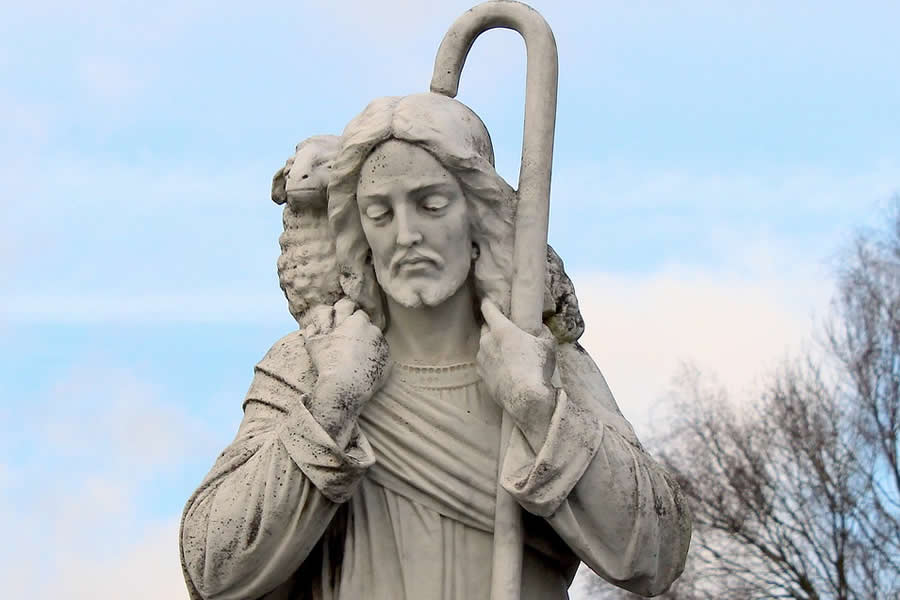
God's Heart of Forgiveneness
09-15-2019Pastoral ReflectionsRev. Brian F. ManningThe main theme of the scriptures and prayers at Mass this weekend is the forgiveness of God. This forgiveness of God is at the very core of our faith. When we step back and think about it, we survive because of it. Forgiveness cannot be categorized or understood in any logical construct, because it is not logical for our all-perfect God to forgive us, his imperfect creatures. That is why forgiveness is an all-encompassing medicine that restores anyone and everyone whom sin and failure have led astray. It gives back to us our future and it eliminates all fear. It rescues us when we have lost our way in life.
The first reading, which is from the Old Testament, illustrates for us a rather fickle God who is easily swayed by the pleading of a just man named Moses. It appears that God seems to come across as rather petty and quite rash, while in contrast Moses appears very wise and quite judicious. In looking closer at the reading, we discover more than the mind of Moses, we actually discover the heart of God. And, sadly, that heart is breaking, yet it is filled with forgiveness.
READ MORE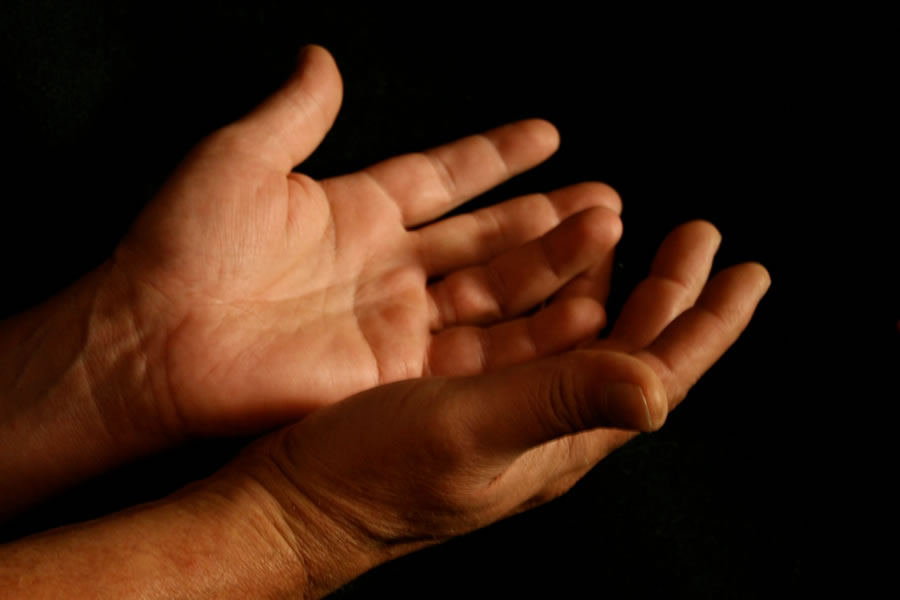
True wisdom knows that it does not know
09-08-2019Pastoral ReflectionsRev. Brian F. ManningWelcome:
Yesterday, Saturday, and also on Friday evening we welcomed Bishop Robert Reed, Regional Bishop of the West, to celebrate the Holy Eucharist and offer the Sacrament of Confirmation to over 200 young men and women. May the power and grace of the Holy Spirit inflame their hearts that they may live a life worthy of Christ. We thank Mr. Roger Gullo, who is Director of the Confirmation Program, for his very dedicated work and service to our young people. In our Program, Roger offers the young people an opportunity to come to understand how they can be the very best version of themselves as active and engaged Catholics each day of their lives.
Pastoral Reflections:
The scripture this weekend invites us to develop a new and different way to view and understand life. The scripture suggest that we look from what we can believe to be God’s point of view. In a sense it is less about me and how I see, and more about God and how God sees.
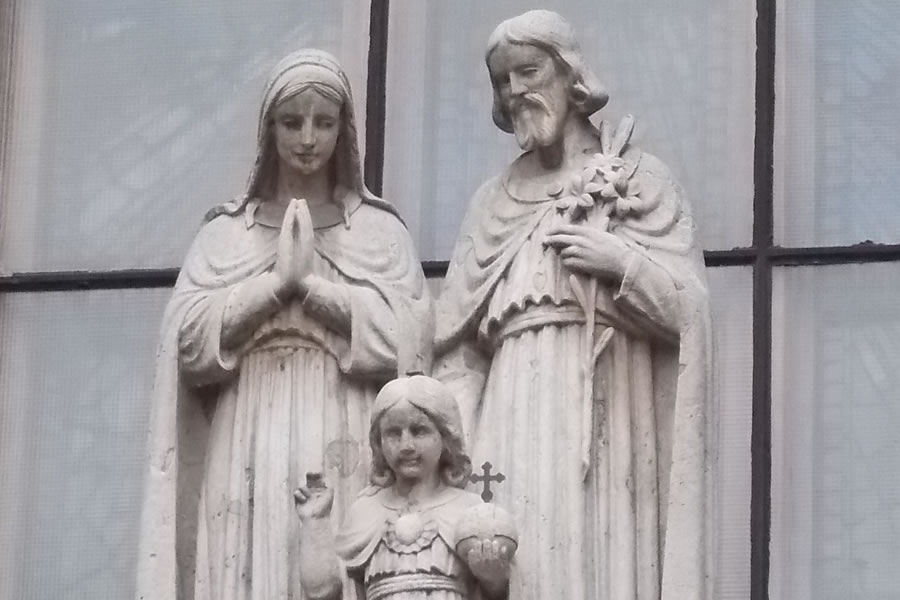
Quiet Kindness
09-01-2019Pastoral ReflectionsRev. Brian F. ManningToday’s scriptural readings are an invitation to us to have an honest reflection and assessment on how we stand with God and people. If we listen to the scripture carefully, we will know how to consider our position with our God and others. It is good in life to occasionally do a “hard assessment” about ourselves. Note it is about our self, and not about other people.
In the first reading, when the wise grandfather Ben Sirach recommends to us the virtue of humility, he is doing far more than urging worldly discretion. Hear him when he says that the humble life “finds favor with God.” Indeed if you are busy all the time looking at yourself, you are not able to look at God, nor are you able to see the goodness of God’s creation around you. Sirach is not suggesting that we disappear, but that God is not impressed at all with wealthy or powerful people, or even people with a lot of “stuff.” It is simply and only our right relationship before God that attracts divine attention.
READ MORE
God's Saving Power Is for Everyone
08-25-2019Pastoral ReflectionsRev. Brian F. ManningIt is so hard to believe that the new school year is not just approaching, but for some of our young people school has already started. Parents have loaded up SUVs with “stuff” for our young college and university parishioners, and have driven them off to their new residence for the next 8 months. Some local schools have begun sports practices and some schools have actually opened and launched the new school year. New learning has begun for so many of young people that we forget that we who are over “university age” also must continue to learn and grow in many and various ways. As followers of Jesus, we are invited to walk in his ways and also continue to learn more from him.
Our first reading this weekend suggests a vision of universal salvation that is quite exotic. The passage mentions so many distant and mysterious places of old that we can only imagine the beauty and distinctiveness of each place: Mosoch, Javan, Tarshish, Put, Lud, and far distant Tubal. The vision also includes the practical: traveling by foot or wheel. Indeed these far distant and mysterious people stream forth. Everyone is welcome, the known and the unknown. This indeed is a contrast to our Gospel passage.
READ MORE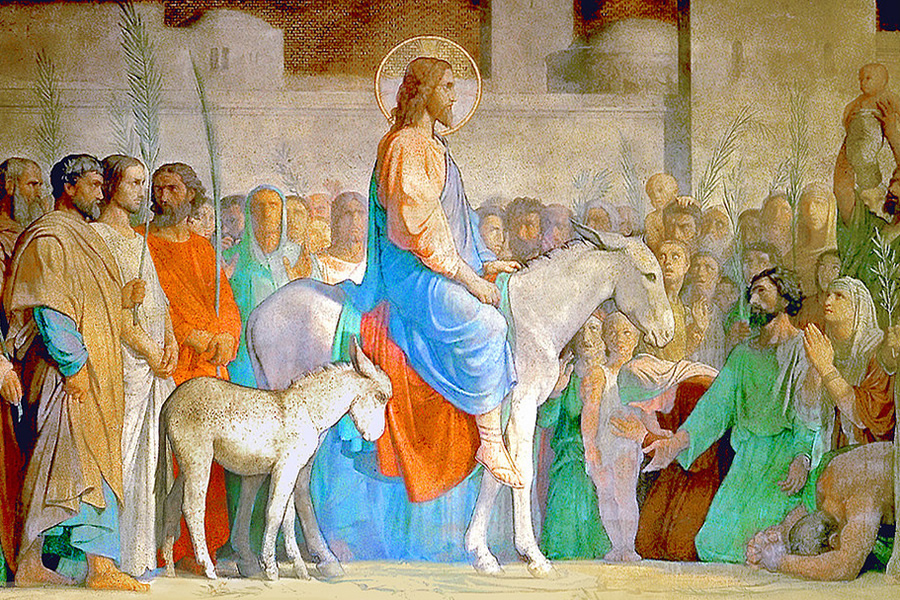
Journey with Jesus
08-18-2019Pastoral ReflectionsRev. Brian F. ManningThe Gospel and the other scriptures this weekend invite us to think about our journey in life with Jesus. We do not usually use this word ‘journey’ so that the word is less familiar to us; we tend to use the word ‘trip.’ Of course, the whole notion of a trip usually means the daily trip by car to work or school. We know, even before the latest State Study, that our roads are overly congested for too many hours each day and that our public transportation is too little and too poorly maintained. Who would want to take a trip with Jesus at the present moment in Metropolitan Boston? Not really too many of us in case he might hear some of our thoughts or words!!!
But to the matter of understanding this weekend’s scriptural passages:
The very young prophet Jeremiah lived in very difficult and hard times and yet he still proclaimed God’s messages. Although he was from an era when prophets were listened to, he still got into trouble because of his message. Jeremiah told them that for the Jews to hold out from the enemy attacking Jerusalem was useless and indeed God was going allow them to be taken by the vicious Babylonians. Indeed this is the worst of news, but what made it even worse was that Jeremiah told them that God had the power to hand them over to their enemy, the Babylonians. This message that God would hand them over was radically new and horrifying to the Jews of then. The big implication in the message was that the Babylonians were also servants of Yahweh, their God. So in anger they threw Jeremiah in a well to die. It took a non-Jew, a foreigner, to help Jeremiah out of the well and let him continue his mission for God. Know that Jerusalem did ultimately surrender, and the people suffered the indignity of the Babylonian exile. Jeremiah was also included and was exiled with his people. It was a long painful journey and trip to Babylon.
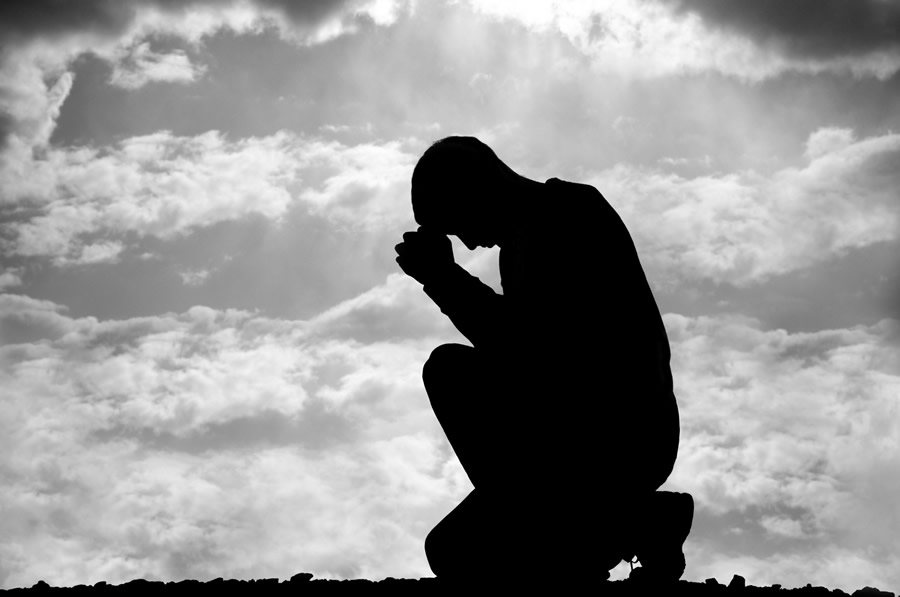
Living Faith Requires Action
08-11-2019Pastoral ReflectionsRev. Brian F. ManningWe tend to think that faith is rooted in reason and in the mind, but faith is actually rooted in feelings and the heart. Faith actually is based in many ways on trust. The scripture this weekend invites us to remember these basic truths about faith.
In the Wisdom section of the Jewish Scriptures, which we call the Old Testament, the actual Book of Wisdom highlights and offers to all of us interpretations and insights into the long memory of Jewish people. The passage today goes back millennia to the very first Passover of the Jews. In this reading we are specially invited to imagine a people who are not yet free, “who sit in darkness and the shadow of death.” This enslaved people found courage in their memory of God’s promise to their ancestors. We get the clear sense that they believed but did not dare dream that God’s promise would finally be realized in them. They, however, did escape through the Red Sea. They, in fact, passed over from no real life in Egypt to ultimately life in God’s Promised Land.
READ MORE
Be Rich in God
08-04-2019Pastoral ReflectionsRev. Brian F. ManningOur first reading this weekend is from the Book of Ecclesiastes, a possible translated name is the Book of the (early) Church. The early faith communities used to read and reflect upon this book so much that it was given the name of the “Church Book.” It is actually the message and sayings of a teacher or preacher named Qoheleth which were gathered into this book in about the third and fourth centuries before Christ. In this pre-Christian era the popular culture believed that the thinkers of that time could unlock the mystery of God. They speculated quite loudly that God perhaps could be defined and understood. Qoheleth, however, totally disagrees with their boast. God, to him, is beyond understanding. And thus he also says that God is beyond our control and indeed God’s actions beyond our prediction.
READ MORE
Gratitude and Praise
07-28-2019Pastoral ReflectionsRev. Brian F. ManningBack in the biblical times of Jesus, when someone saw a leper, they were always horrified by the sight of the filthy clothes, the skin with sores all over and especially the stench. These sick people had to shout “Unclean! Unclean!” wherever they went. Thus the scene in today’s Gospel of the ten lepers approaching Jesus is jaw dropping with fear and fright for everyone. Remember that one of the ten is a Samaritan, which to the Jews of then was like having leprosy times two. All ten lepers shout out to Jesus to pity them. Jesus tells them to show themselves to the temple priests, who are the only officials allowed to pronounce them “clean” (healed). We learn that as they go along to the priests, all ten are cured. Yet we know that only one of the ten, the Samaritan, returned back to Jesus.
READ MORE
The Holy Balance
07-21-2019Pastoral ReflectionsRev. Brian F. ManningOur summer season has clearly arrived with this beautiful sun and wonderful warmth. For folks who have swimming pools, wonderfully large decks for grilled dinners, or homes away at lakes or oceanside towns, this is a great season of hospitality. In the last three weeks my family has had a constant and wonderful flow of family and friends at our home down in Falmouth. Nephews, nieces, grand nephews and grand nieces, in-laws, and countless long time and newly made friends have visited for a stay or for a great summer dinner. Our summer is a time of great informal hospitality. Are you also aware that the gracious art of hospitality also runs quite deeply in the Hebrew and West Asian traditions?
Our Old Testament is full of examples of this welcome. Indeed the Jews are reminded quite clearly that they once were a wandering people, and it is their obligation and honor to welcome the stranger and alien among them. Our holy scripture makes it quite clear that opening our heart and home to another is truly a holy act. This scripture this weekend should help us purify our hearts and minds over the present controversy over immigration and perhaps come to decisions which are worthy of our faith and our God.
READ MOREThe Mystery of Mercy
07-14-2019Pastoral ReflectionsPope Francis, Misericordiae Vultus, n.1, 10, 15Jesus Christ is the face of the Father’s mercy. These words might well sum up the mystery of the Christian faith. Mercy has become living and visible in Jesus of Nazareth, reaching its culmination in him.
Mercy is the very foundation of the Church’s life. All of her pastoral activity should be caught up in the tenderness she makes present to believers; nothing in her preaching and in her witness to the world can be lacking in mercy. The Church’s very credibility is seen in how she shows merciful and compassionate love. Perhaps we have long since forgotten how to show and live the way of mercy… Sad to say, we must admit that the practice of mercy is waning in the wider culture. In some cases the word seems to have dropped out of use. However, without a witness to mercy, life becomes fruitless and sterile, as if sequestered in a barren desert. The time has come for the Church to take up the joyful call to mercy once more. It is time to return to the basics and to bear the weaknesses and struggles of our brothers and sisters. Mercy is the force that reawakens us to new life and instills in us the courage to look to the future with hope.
Let us not fall into humiliating indifference or a monotonous routine that prevents us from discovering what is new! Let us ward off destructive cynicism! Let us open our eyes and see the misery of the world, the wounds of our brothers and sisters who are denied their dignity, and let us recognize that we are compelled to heed their cry for help! May we reach out to them and support them so they can feel the warmth of our presence, our friendship, and our fraternity! May their cry become our own, and together may we break down the barriers of indifference that too often reign supreme and mask our hypocrisy and egoism!

Willing to be Vulnerable
07-07-2019Pastoral ReflectionsRev. Brian F. ManningThey say “in the good ole days” that small-town newspapers used to wrap up their reports of a gathering or event with “A good time was had by all.” This was just how it all was said. People were to conclude that some good food and good company were shared. Thus indeed it was a good time for one and all.
In the scripture in the Old Testament this weekend, there is a similar type line: “The Lord’s power shall be known to his servants.” Those servants are us. Note how the Lord’s power is expressed in positive terms in nourishment and warm comfort. We are the fortunate receivers of this kind of power. The line is the summary of a vignette in which Isaiah gives us an image of the city of Jerusalem as a nursing, comforting mother. Imagine, in knowing this, our hearts and spirits are lifted up and grow.
READ MORE